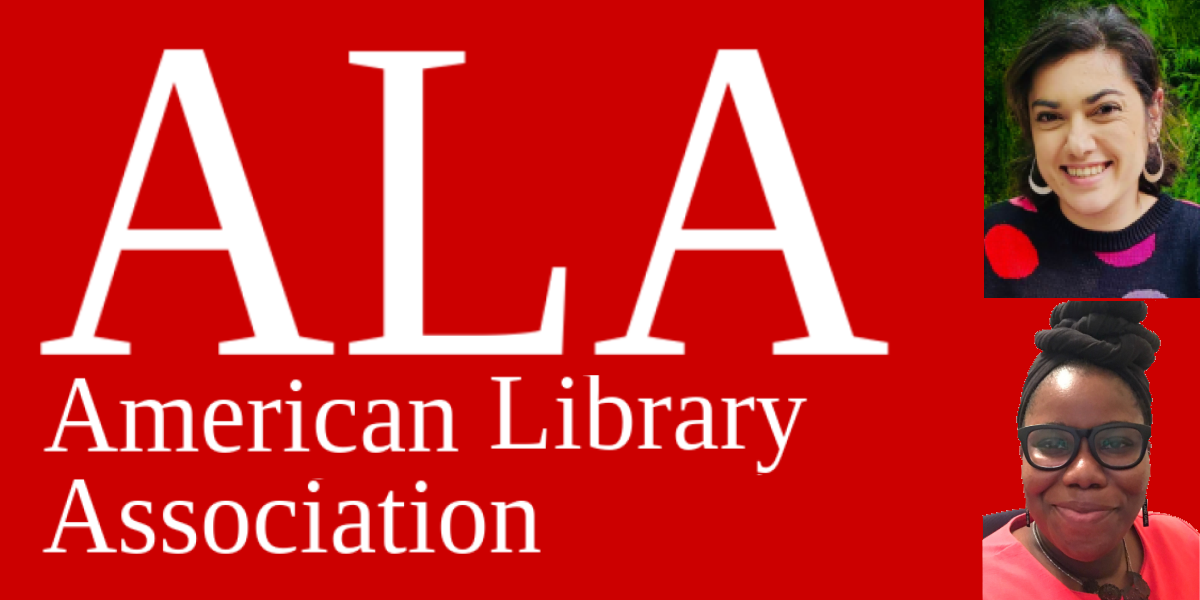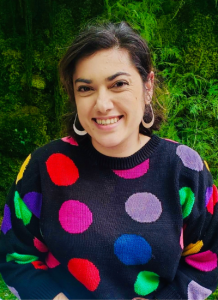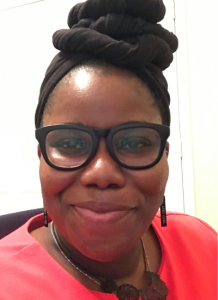This year’s Fellows will work to expand social justice curricula and increase support for doctoral students and faculty in LIS fields.

Last month, the American Library Association (ALA) announced the recipients for the newest round of Spectrum Doctoral Fellowships – Catalysts for Change. Lydia Curliss and Twanna Hodge, two PhD students at the UMD College of Information Studies (Info College), are among the seven fellowship recipients.
Through Catalysts for Change, ALA—in partnership with the University of South Carolina’s School of Information Science—has developed this cohort of racially and ethnically diverse doctoral students focused on advancing racial equity and social justice in library and information science (LIS) curricula. The project aims to develop future LIS faculty committed to fostering racial equity through teaching and research while also building capacity and cooperation amongst partnering LIS degree programs to expand social justice curricula and increase support for doctoral students and faculty in the field who are Black, Indigenous, and people of color.
In addition to providing tuition and stipend support to each Fellow, the Spectrum Doctoral Fellowship includes participation in specialized coursework to establish a shared framework and understanding of social justice and anti-racism that will ground the ways in which Fellows approach equity in action through research and teaching.
Get to know our ALA Spectrum Scholar Recipients:
 Lydia Curliss
Lydia Curliss
From studying the “archives of the Earth,” to the archives at cultural heritage institutions, Lydia’s academic journey has been one deeply rooted in her Indigenous heritage. Lydia’s current research interest is focused on the relationships and interactions between Indigenous Tribal communities and GLAM (galleries, libraries, archives, and museums) organizations, particularly archival institutions. She is interested in studying how partnerships are formed and how institutions can better understand and serve the information needs of these communities.
Lydia is a student member of the RRAD Lab and EVID Lab, and serves as the iSchool PhD Ambassador for the iSchool. She is also a co-founder of a new student group attached to the Center for Archival Futures (CAFe). She holds several other roles outside of her academics, including community outreach coordinator on the Brown University Stolen Relations Project, Summer Intern at the NMAI Archive, Council member of the Hassanamisco Tribal Council, a Member of the American Antiquarian Society Indigenous Engagement Advisory Board, Peer Reviewer for the Journal of Contemporary Archival Studies, and Co-Facilitator of the ARTS (AntiRacist Teaching Seminar) through the UMD Info College.
Lydia said she is “excited to work with like minded scholars and work towards creating greater equity and diversity within the field.” She also hopes to use her time in the fellowship to improve her teaching skills, connect with other scholars, build her network, and work towards diversity in the library and information field.
Lydia chose to pursue her PhD at UMD because of the accessible and diverse research opportunities in archives, and was drawn to the program’s collaborative feel to work on projects outside of the University in the greater DC metro area. This Fall, she will be entering her second year of the UMD PhD program while continuing to work as a Graduate Assistant for Dr. Diana Marsh. The duo are working on a project to investigate the SNAC (Social Networks and Archival Context) Platform as a viable way to enhance accessibility and usability of archives for Tribal and Indigenous communities.
 Twanna Hodge
Twanna Hodge
Twanna is a first-generation American citizen, a First-generation college graduate, and a BlackAfro-Caribbean woman, bringing a unique perspective and over six years of professional academic librarianship experience to the ALA Spectrum Scholars program. She was drawn to the UMD Info College for its longstanding commitment to social justice woven into the curriculum and foundations of the College.
Her current research interests center on the retention of traditionally underrepresented graduate students, especially LIS candidates from Black/African American/Afro-Caribbean backgrounds. She is interested in researching and designing diversity-related courses beyond survey courses to address epistemic justice, as well as exploring how cultural humility could be used as a framework to further embed equity, diversity, and inclusion in the LIS curriculum.
Twanna is “deeply committed to becoming a LIS faculty member, a better equity, inclusion, and equity researcher, and further contributing to the field of LIS,” which she believes the ALA Spectrum Doctoral Fellowship will be a critical step needed to accomplish these goals. Her future plans include working at a library/information school as tenure-track faculty and conducting research with colleagues nationwide and globally. She also hopes to further embed EDI and cultural humility into LIS curriculum to prepare current and future colleagues for diverse workplaces and environments, further integrating materials and courses focused on race, racial justice, equity, and racial identity development.
Outside of her PhD studies, Twanna co-teaches “Recruiting and Retaining Librarians from Underrepresented Minoritized Groups,” an asynchronous online course with Tarida Anantachai, as part of the Library Juice Academy Certificate in Diversity and Inclusion Skills curriculum. She is currently in the revision stages of a co-authored book chapter with Xan Goodman, Building Connections, Crucial Conversations, and Cross-Cultural Relationships in the Cultural Humility in Libraries, with an expected publication in spring 2023. She is also an advisory board member for the Black Caucus of the American Library Association “Breaking Barriers: The Future of Black Librarianship National Forum” grant. Twanna was recently elected as an ALA Council-at-Large, which is a 3-year term starting in July 2022.
Read the formal Spectrum Doctoral Fellows announcement on the ALA website here.